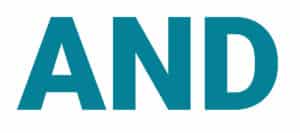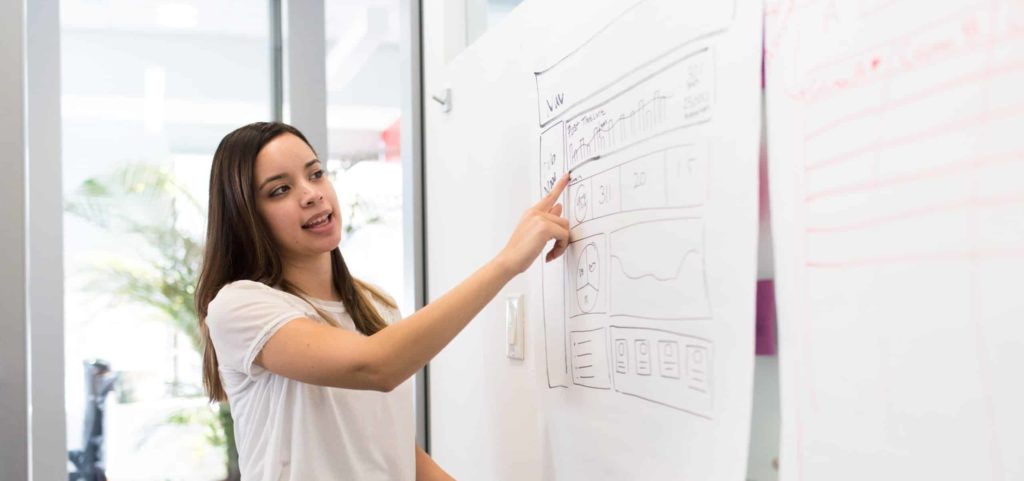With the advance in technology, the way we work is changing. By the end of 2022, 16% of the world’s companies will be 100% remote, while 85% of managers believe remote working teams will soon become the new norm.
The statistics are clear. There’s no denying the growing trends shaping the way we work today.
Today’s higher learning institutions must prepare students for the changing workforce by instilling 21st-century skills. This article will discuss one such skill—leadership, specifically virtual and hybrid leadership— and how and why the way we teach this skill should change.
This information and advice will help you give your students the tools they need to become career-ready and succeed in our new reality as future leaders.
What is the importance of leadership?
Leadership is the foundation of any organisation because good leaders have the power to shape the future of a business. Leaders can set clear directions and goals by creating a culture, vision, and mission.
A good leader will:
- Initiate action
- Motivate and inspire
- Build morale
- Instil confidence
- Offer clear guidance
These steps are vital for creating a productive and efficient workplace with eyes to the future.
The changing working world means how we approach leadership is also shifting. Today’s leaders must foster a collaborative environment and encourage creativity and innovation—even in remote and hybrid spaces.
What is the future of leadership, and what are the critical skills involved?
We know that effective leaders are empathetic, strong communicators who are generous with feedback. We also know that most Australians are reluctant to return to face-to-face work, meaning we must challenge the traditional leadership model that relies on controlled places, hours, and roles.
Adapting to a more humanistic work structure that relies on the flexibility of both time and place, a focus on strengths-based work, a human element, and decentralised decision-making is the way forward. According to PwC’s Global Workforce Hopes and Fears Survey 2022, most Australians’ ideal work environment is a mix of face-to-face and remote working.
The question here is: how do we build trust and connectivity with new leadership methods that don’t rely on the traditional techniques we’re accustomed to?
A true leader, and effective leader, leads by example. They’re invested in their team’s success, have open communication channels, are flexible and empathetic, and set clear goals and strategies to reach them. None of this is confined to the idea of a ‘workplace’. It is, however, part of a successful ‘workforce’.






So how do we, as educators, prepare the next generation for this task?
The answer is project-based learning and, in particular, virtual project-based learning. Project-based learning allows students to put theory into practice. It helps them foster the skills they need to lead in this new world of work.
Remote work experiences, whether in curriculum or extra-curricular, are no longer optional extras. They are just as relevant and essential (arguably more so) as the traditional face-to-face model. Our goal is to create employable graduates. And employable graduates don’t just survive in the hybrid world; they thrive.
The new world of work is hybrid, and our next generation of leaders have an unparalleled opportunity to transform how we enter the workforce.
Challenges of traditional leadership strategy development
Traditional leadership is quintessentially autocratic and hierarchical. This approach falls in stark contrast to today’s methods, which focus on teamwork and clear, reciprocal communication.
Under a traditional leadership style, employees have little to no say in how an organisation progresses. This approach limits rapid growth and innovation, shutting down transformative ideas and fresh perspectives.
Modern leadership is reciprocal. Leaders provide support and guidance while employees confidently share ideas, suggestions, and concerns. This method creates a productive environment where all staff feel empowered and confident in their contributions, boosting motivation and propelling the organisation forward.
What is a hybrid working approach?
The hybrid working approach is a mix of remote and in-office work. Some companies allow workers to choose when to work from home and head into the office, while others set specific in-office hours or days. Other employers may require employees to enter the office for weekly meetings while working remotely.
This type of work soared in popularity at the tail end of the COVID-19 pandemic, creating a comfortable balance of work-from-home and office-based business.
How hybrid working is changing the role of business leaders
The hybrid model is transforming how we work, including how we approach leadership. Let’s discuss this change in more detail now.
Inspiring workers
Hybrid work is increasingly popular with employees because of the flexibility the approach offers. Reduced commute times offer more freedom and a better work-life balance for workers, allowing them to dedicate more time to family, health, and leisure.
A worker free to take care of their emotional and physical well-being is more likely to perform well in the workplace—and know how to lead a team effectively.
Future leaders will share this positive outlook with other workers, inspiring them to reach higher and achieve more—inspiration is a key aspect of modern leadership.
Building a virtual work culture
Employees still value a strong sense of culture and community in the virtual world. The need to bond over interests, attitudes, and perspectives is more important than ever.
Effective modern leaders will develop a fantastic hybrid work culture, fostering trust, respect, and success. The key here is for leaders to focus on points relevant to their company’s goals.
For example, good leaders will avoid micromanaging and using software to track team member behaviour for companies that value trust.
Empathy
Gone are the days of the authoritarian leader telling everybody what to do and how to think. Today’s successful leaders are quite the opposite—empathetic, understanding people who treat employees equally and value their unique contributions.
Empathy and positive working outcomes go hand in hand. A recent Catalyst study found the skill drives better:
- Innovation and new ideas
- Employee retention
- Engagement
- Work-life balance
In the hybrid workplace, empathy is essential. Some employees may prefer to work from home, valuing the ability to set their schedule. An understanding leader will acknowledge this preference and allow employees to work in a way that suits them—leading to improved outcomes for the company.
What are the future challenges in leadership skills?
As the popularity of hybrid and remote work continues, future leaders will face a range of challenges. The best way to overcome these barriers is to understand how and why they might happen.
Communication is one of the most obvious challenges. When working from home, employees no longer have the option to drop by the boss’s desk to ask a quick question—instead, they must rely on digital channels to get their message across.
Leaders can tackle this problem by maintaining open lines of communication, such as through instant messaging software.
Similarly, leaders must learn how to keep diverse teams coordinated, which can be difficult with employees working in different spaces and even different timezones. Cloud-based work and project management software can make this easier.
How to prepare students for the future of leadership
The best way educators can prepare students for the future of leadership is to teach them practical skills in a real-world setting.
Project-based learning (PBL) is a powerful way to achieve this goal.
Through meaningful and relevant projects, students can exercise their developing leadership skills and learn to solve problems in real-time. Students will also develop critical Professional skills for effective leadership, including:
- Confidence and assertiveness
- Strong self-esteem
- Ownership and responsibility for their work
- An ability to manage feedback and criticism positively
- Communication and interpersonal skills
For example, a student could take control of a fundraising drive for a local charity as part of their chosen project. This student will learn to manage and coordinate a group activity, interact with their community, and inspire others—key leadership skills.
PBL’s focus on the student’s voice and decision-making fosters creativity, independence, and understanding preparing students for the future leadership challenges discussed above.
How Practera can help
The King’s Careers Team were looking for virtual project learning opportunities that would grow their students’ future leadership and employability skills whilst also provide workplace insights and engage students with the industry. But managing real-world projects with industry clients is costly & difficult to do at scale. King’s Careers deployed multiple two-week virtual industry projects powered by Practera, in which student teams responded to client project briefs in a virtual environment.
Through Practera’s industry experience programs, not only did the students grow their virtual leadership and teamwork skills, but more than 87% of the student participants were willing to recommend the program to their peers, and 90% felt that the program had made a real impact on their employability skills.
Through Practera, your students can connect with local and global organisations to enjoy the same compelling and engaging experiences, building crucial skills for the future of leadership.
Our project learning platform and programs have all the digital tools and features you need to deliver transformative project-based learning experiences and give your students a competitive advantage in the workplace—including comprehensive analytics, 360-degree feedback, and detailed progress and performance tracking.




